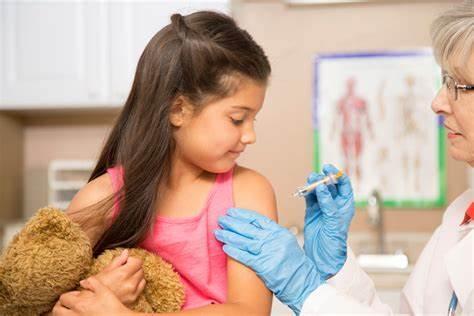
Four Tips Help You Prep for Your Child's Allergies During COVID-19

Santa Monica, CA-
School supplies? Check. New shoes? Check. Allergies and asthma under control? Let’s go over the list one more time to make sure you and your child are ready for the school year, even if that means in home-schooling this year.
“Keeping allergies and asthma under control during the school year is a huge challenge,” says allergist Dr. Bernard Geller, Allergy & Clinical Immunology Medical Group. “If you plan in advance, and understand the procedures that are in place to keep your child healthy, you’re ahead of the game. If your child does go to school this year, remember to keep communication with the school open, and work with your child to know their triggers. If you do, you’ll be off to a great start to the school year.”
Below are four tips from the American College of Allergy, Asthma and Immunology to put you at the head of the class when it comes to controlling allergy and asthma.
- Questions? Raise your hand. – If you need answers to questions about your child’s health, ask now. Find out in advance how the school nurse handles allergy emergencies. Who calls 911? What if your child can’t remember how to use their epinephrine auto injector, or can’t locate it? Are there stock supplies of epinephrine and asthma medications? How are teachers trained to respond to allergic reactions? Create a list and take it with you when you meet with the school nurse. If you are doing school at home this year, make sure that you have a plan set in place. Keep the epinephrine pen auto injectior in a accessible place, where its easily located.
- Make sure a food allergy diagnosis is correct – While about 5 to 8 percent of children have food allergies, many are misdiagnosed due to testing that isn’t called for. That can lead to unnecessarily cutting foods out of a child’s diet, which can negatively affect their nutritional health. Blood and skin prick tests are very helpful, but only if your child has already had a reaction to a food, not by themselves. It’s important to work with an allergist to diagnose food allergies. If your child does have a food allergy, make sure the school is fully informed. Work with your allergist and school staff to have an action plan that lists the foods your child is allergic to, what treatment needs to be given, as well as emergency contact information.
- Are allergens hiding at school? – You probably know where allergens are found in and around your home. There may also be some hidden allergens at school that cause sneezing and wheezing. Your child could be allergic to the classroom pet, or to the dander from another child’s pet that was carried in on their clothing or backpack. Pollen and dust settle in the classroom, and if not cleaned properly, can set off symptoms. Is the classroom window open? It could be bringing in pollen. If a child says they are coughing during the school day, having difficulty breathing, have a rash, runny nose, or are sneezing, these could be signs they are allergic to something in school.
- Consult the expert! – Make an appointment with your child’s board-certified allergist before school starts. An allergist can confirm what is causing symptoms and show you how to avoid triggers. For children with especially troublesome allergies, an allergist may prescribe immunotherapy (allergy shots or tablets) which can change the course of, and lessen the intensity of how an allergy develops. If your child takes medicine, their allergist will make sure prescriptions are the right dose for their size and are up-to-date. Kids who have asthma who see an allergist have 77 percent fewer days out of school.
If your child is experiencing allergy and asthma symptoms, make an appointment with a board-certified allergist to develop a treatment plan and eliminate symptoms.
Visit our website to find more information on allergies and asthma, at www.SneezeWheeze.com, or reach us by telephone: (310)828-8534 or by e-mail: FrontOffice@allergyandclinical.com
Dora Afrahim, MPAP, PA-C
Allergy & Clinical Immunology Medical Group
You Might Also Enjoy...


FDA Approves the First Peanut Allergy Treatment

Telehealth: The Advantages of Telemedicine

Four Tips to Help you Stay Calm and Ease Sniffling, Sneezing, & Wheezing this Holiday Season

Keeping Allergies and Asthma at Bay is the Best Gift



